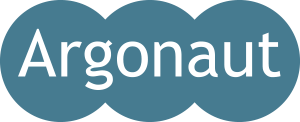Luxembourg
- Home

- Luxembourg

- Luxembourg
Country Facts
- Biggest holidays and celebrations: Luxembourgish people usually take their holiday in the summer, Christmas and Easter period. Most business are shut between Christmas and New Year. The Grand-Duke's birthday on the 23rd June is a national holiday and is celebrated with fireworks, street parties and fairs.
- Celebrities you should know: The Grand Duke Henri (Luxembourg's Monarch), his wife Maria Teresa and his heir Guillaume. Jean-Claude Junker : Luxembourg's former prime minister who became President of the European Commission in 2014.
- Historical figures: Robert Schuman (born in the Grand Duchy; later became French) former French Prime Minister and one of the founding fathers of the European Union in the 1950s. The former regents Grand Duchess Charlotte (1896-1985) and her son Grand Duke Jean (born 1921). The poets Michel Rodange (1827-1876) best known for writing Luxembourg's national epic 'Renert' and Michel Lentz (1820-1893), author of the Luxembourgish national anthem 'Ons Heemecht'.
- Food taboos and favourites: 'Judd mat Gaardebounen' (smoked collar of pork in a broad bean sauce) is considered to be the main national dish. Other traditional foods include 'Gromperekichelcher' (deep-fried potato pancakes), Träipen (black pudding with apple sauce), Bouneschlupp (green bean soup), Kachkéis (soft cheese spread) and Quetschentaart (plum tart). The white wine Riesling is produced in the Mousel river valley, which extends into Germany and France. Locally brewed beers include Mousel (in honour of the river) and Diekirch (named after a local town).
- Key words and national identity: "Mir wëlle (or wölle) bleiwe, wat mir sin" - Luxembourg's national motto means 'We want to remain what we are'. It displays the Luxembourgish people's strong sense of identity and independence, despite or rather because of continued threats and actual invasions by Germany, France, Belgium, the Netherlands, Austria and Spain over the centuries. It is taken from the last verse of the national song "De Feierwon" written by Michel Lentz, who also authored Luxembourg's national anthem.
- Landmarks and places of cultural significance: Main sites in the capital Luxembourg City include: the Notre Dame Cathedral, the Casemates (historic fortications), the Place d'Armes (city's main square) and the Gëlle Fra (statue of a 'Golden Lady' intended as a war memorial). Other significant locations are the Castle of Vianden and the Benedictine Abbey of Echternach.
- Languages and foreigners: Luxembourg's official languages are Luxembourgish (mainly used orally), and French and German (administrative languages). People educated in Luxembourgish schools are fluent in all 3 languages but will consider Luxembourgish their native tongue. They usually also speak good English. Nearly half the resident population is foreign and nearly half the workforce commutes in daily from neighbouring countries. The biggest foreign groups are Portuguese, French, German and Belgian nationals and it is rare for these groups to learn Luxembourgish. Luxembourgish-speakers tend to adapt to their foreign counterpart's language skills several times a day whether in the office, in shops, restaurants or with friends. Foreigners' inability to use Luxembourgish in many aspects of public life however can breed resentment and any efforts by foreigners or visitors to learn Luxembourgish are warmly welcomed.
- Music genres: Luxembourgers usually listen to music from English-speaking countries, Germany and France. A small number of local artists sing in Luxembourgish. The traditional folk song has fallen out of fashion.
- Sports: Football
- Symbols of identity: The country's multi-cultural past and present make for a society with few distinguishing national external features. The ability to speak Luxembourgish natively is probably the main symbol of Luxembourgish identity. Immigrants rarely choose to learn the language despite settling long term in Luxembourg. Mastery of the lanugage is therefore a symbol of true integration. This means that the many Luxembourgish-speaking 2nd or 3rd-generation immigrants are quite naturally accepted as fully Luxembourgish by others and themselves.
- Capital City: Luxembourg
- Currency: 1 euro = 100 cents
- Government: Parliamentary democracy with constitutional monarchy
- International dialling code: +352
- Official language: French, German, Luxembourgish
- Population: 600,000
- Religion: Catholic; other religions in small numbers
- Web domain: .lu
- Learn more: <a class="button" href="https://www.cultureconnector.com">CultureConnector</a>

